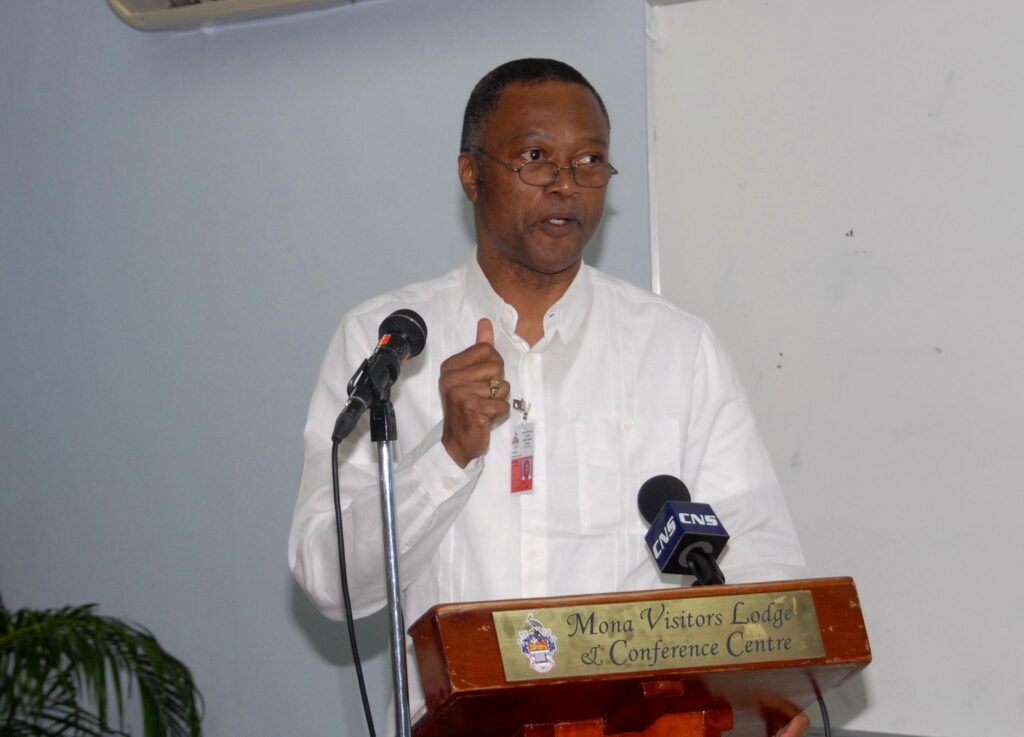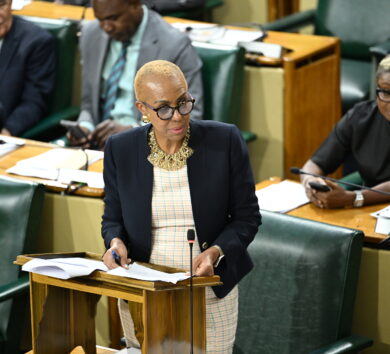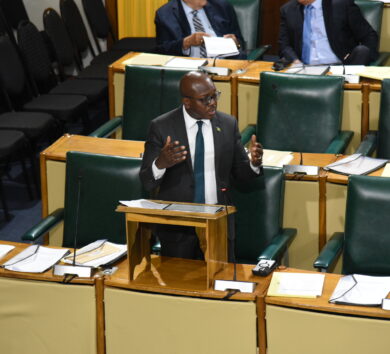
An online survey conducted by the Hugh Shearer Labour Studies Institute, at the UWI Open Campus has estimated that about 60 per cent of Jamaican organisations were forced to have their employees work from home during the height of the coronavirus pandemic; with two out of every three private sector employees working remotely during the period of workplace restrictions.
READ: Everyone has a home office now. So who’s paying for it?
An estimated three out of every four, or just over 75 per cent of employees in small-scale enterprises were required to work from home; with 58 per cent of employees in medium-sized enterprises and 66 per cent in large-scale organisations requiring to work remotely.
The study was conducted between September 1 and October 9 and was designed to examine employers’ thinking on the use of work-from-home (WFH) arrangements during the COVID-19 outbreak, and the need for a WFH policy as a post-COVID ‘new normal’ workplace practice.
A total of 147 organisations participated in the online survey representing both the public and private sectors, with representative samples from large, medium and small enterprises. The Jamaica Employers’ Federation and the Small Business Association of Jamaica collaborated with the Institute on the study.

The results showed that although more employees from the private sector, when compared with the public sector, worked remotely during the period of partial shut-down amid the pandemic, since the removal of workplace restrictions, slightly more public sector employees, 62 per cent, still remain at home working remotely, as against 58 per cent of private sector employees.
In response to whether employers foresee working from home as a new feature of their employment relationship in a post-COVID era, 60 per cent of organisations responded positively, while 40 per cent had not considered it as a new measure going forward. A disaggregation of the figures between the public and private sectors, however, showed that 69 per cent of public sector organisations are willing to have employees continue to work remotely in the post-COVID period, when compared to 55 per cent from the private sector.
“The global coronavirus pandemic has accelerated the debate about the future of work and the notion of flexible working arrangements as an important consideration in balancing organisational efficiency and employees’ wellbeing, particularly for us in the developing world.”
Danny Roberts, head of the Hugh Shearer Labour Studies Institute
Only 26 per cent of the organisations that participated in the study indicated that they have adopted and implemented a WFH policy, with the private sector accounting for 89 per cent. An estimated 39 per cent are actively considering the development of such a policy, while 17 per cent have drafted a policy but have not yet implemented, and 18 per cent have not given thought to the adoption and implementation of such a policy.
Danny Roberts, head of the Hugh Shearer Labour Studies Institute, said “the global coronavirus pandemic has accelerated the debate about the future of work and the notion of flexible working arrangements as an important consideration in balancing organisational efficiency and employees’ wellbeing, particularly for us in the developing world”.
He noted that many companies have begun exploring home-based work as an alternative working arrangements and “we have seen a greater frequency in its use over the last decade, as well as the positive effects it can have on employee productivity, improving work/life balance and fostering better mental health”.
Roberts said the Institute will, in the near future, be looking at a more robust study examining the feasibility of working from home across broad occupational groups. He noted that about 17 per cent of occupations in middle-income countries like Jamaica can effectively be done from home as a significant number of jobs in elementary occupations, crafts, or occupations involving plant or machine operations cannot be done remotely. He added that the issues of economic and occupational structures, personal and job characteristics, environmental factors like broadband Internet, housing and the personal ownership of computers are issues which must be contended with in any future study.







Comments